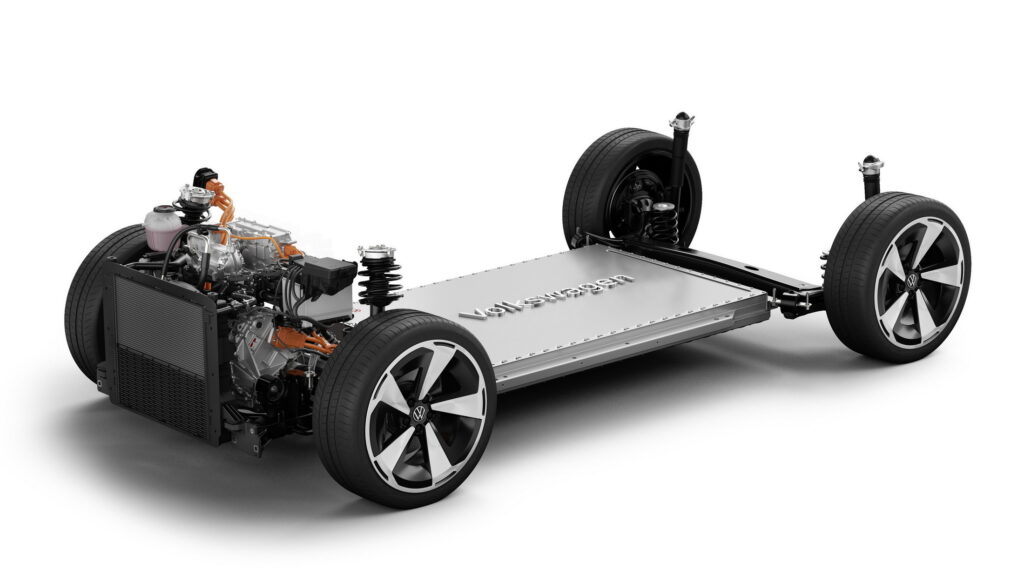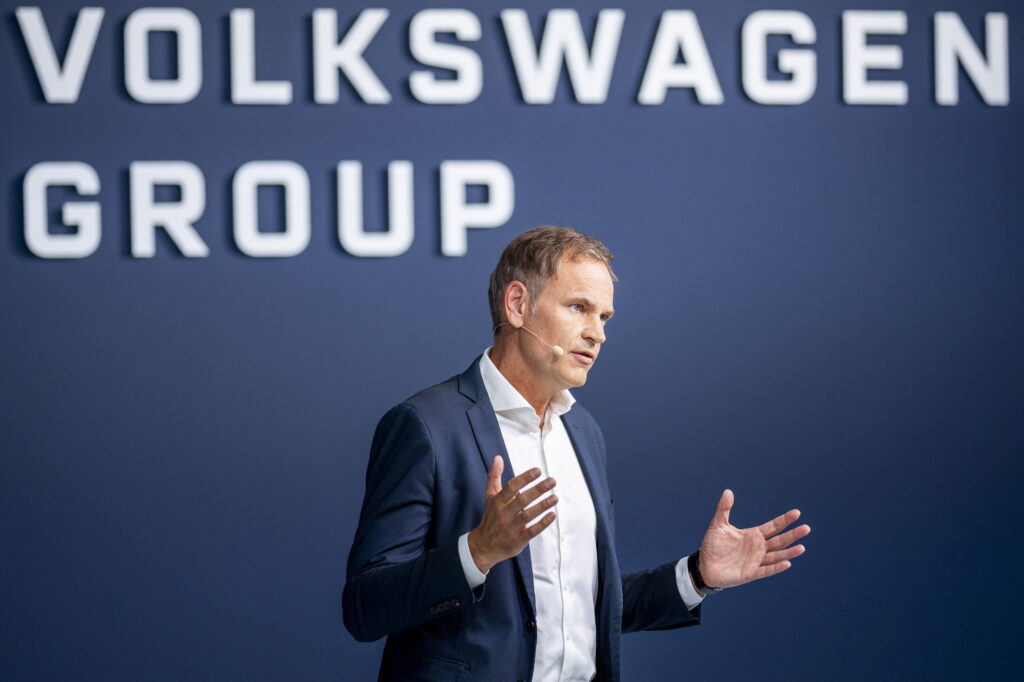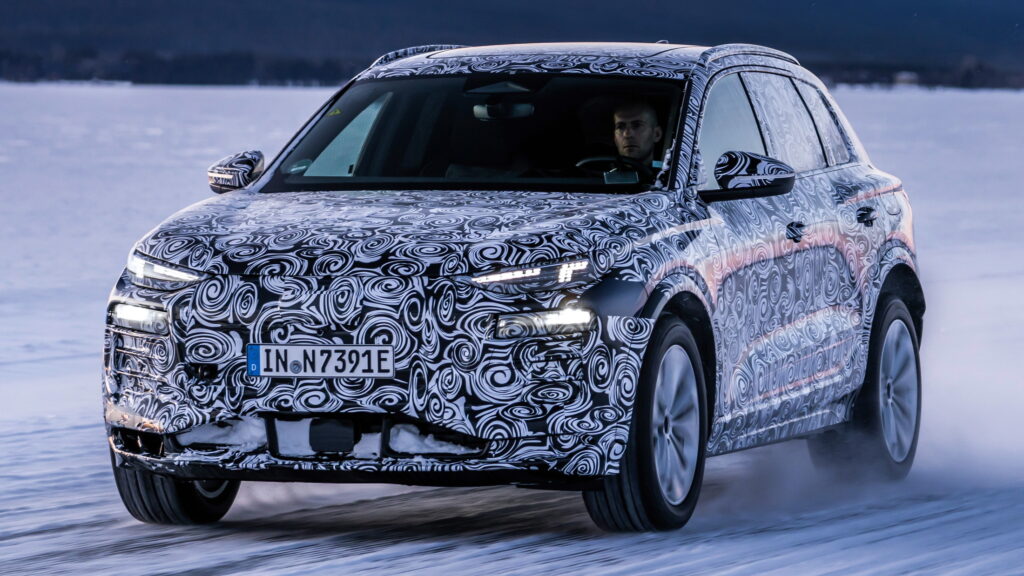VW previously said that the SSP platform would be delayed until at least 2030, but its CEO now claims it will launch on schedule
4 hours ago
 –>
–> 
–>
The Volkswagen Group’s new CEO, Oliver Blume, has made a bold pronouncement about the automaker’s electric future. After the company itself said that its next-generation SSP platform for electric vehicles would be delayed until as late as 2030, he now claims that the project is back on schedule, and will launch in 2026.
Under its old leadership, the VW Group had endeavored not only to create a single EV platform for every vehicle it makes, from the smallest city car to the biggest luxury SUV, but it had also promised to develop the software that would allow industry-leading efficiency and fully autonomous driving.
The likelihood of VW achieving that looked grim after the launch of the eighth-generation Golf and its first modern EV, the ID.3. Both vehicles suffered serious software issues, which later threatened to delay the launch of more EVs from other brands, and eventually led to the revised SSP launch date of between 2028 and 2030.
However, at a capital markets event VW held this week, Blume said that the platform would launch in 2026, and would be capable of supplying vehicles with up to 1,700 hp (1268 kW/1,724 PS), instead of the 1,100 hp (820 kW/1,115 PS) it had first promised, reports Autocar. If successful, the rectification of the timeline for the crucially important SSP platform will be a major achievement for the CEO.
Read: VW Could Delay Trinity EV Until 2030 And Scrap €2 Billion German Factory

“The SSP architecture will balance the need for scale and standardization with differentiation and speed,” said Blume. “Architectures cover up to 75 percent of all material costs for BEV, compared to up to 10 percent for ICE […] Therefore, architectures are a key driver for profitability in the future.”
advertisement scroll to continue
Blume also promised that vehicles based on the platform would be able to charge from 10 to 80 percent in just 12 minutes, less than half the time (35 minutes) it takes vehicles on VW’s existing MEB EV platform to recharge.
That will be aided by VW’s new universal cell architecture that uses a variety of chemistries. Not all will have brag-worthy figures, though. Some, such as the LFP (lithium-iron-phosphate) cells, will be designed instead for its cheapest vehicles.
Although the SSP platform will underpin every VW Group vehicle from the lowest-cost Škoda to the highest-priced Lamborghini, not every vehicle’s chassis will be identical. Volkswagen will work on the smallest version of the platform that will be targeted towards its cheapest vehicles, Audi will work on the middle platform, and Porsche will create the biggest, most expensive version of the platform.
The VW group’s new software will also allow its vehicles to have up to Level 4 autonomy, essentially the most driverless a vehicle can get while retaining a steering wheel and controls for humans.
Although the SSP platform will launch in 2026, there will still be some steps along the way. The MEB platform will be updated to the MEB+ in 2025, while vehicles based on the PPE performance platform that Audi and Porsche are co-developing should start arriving next year.



